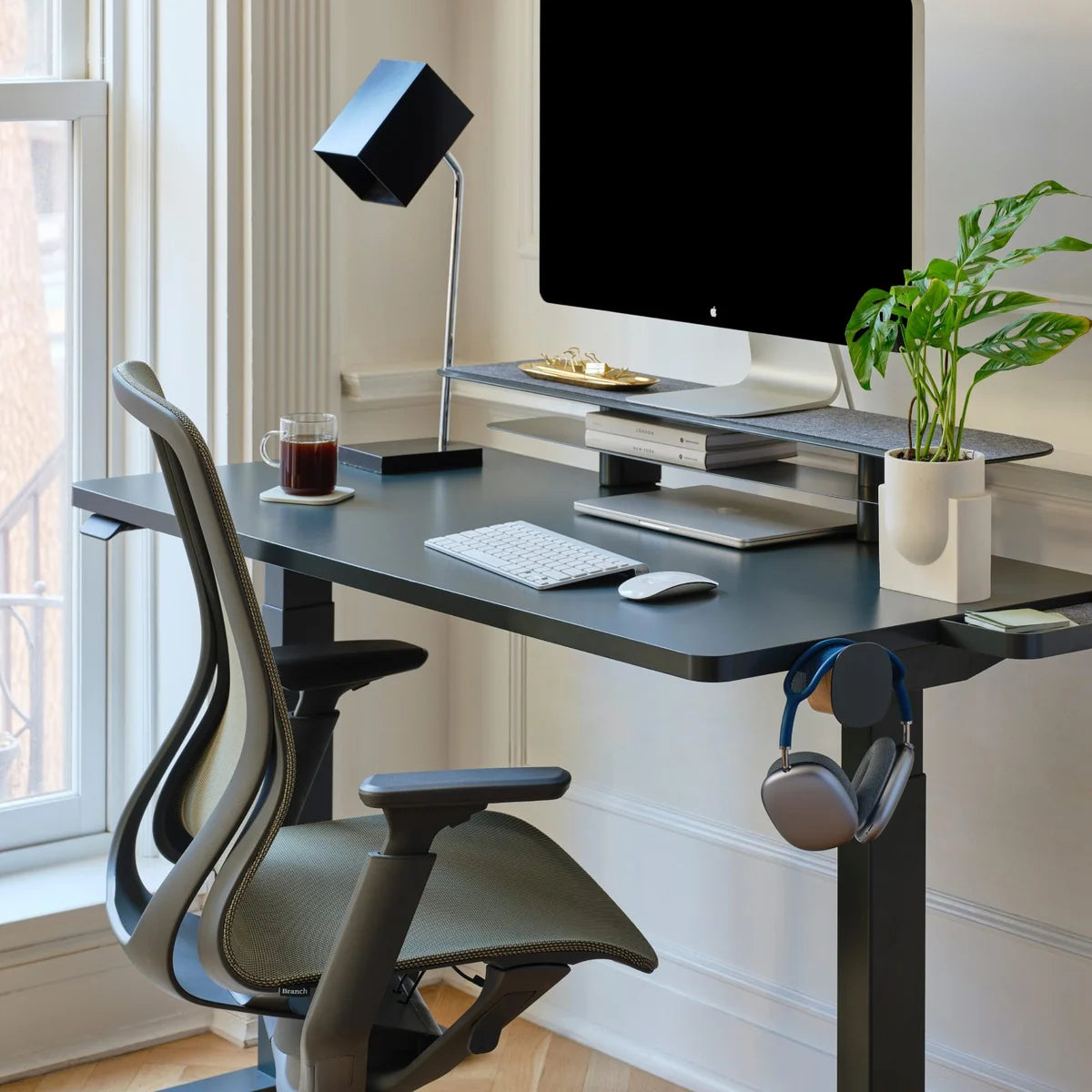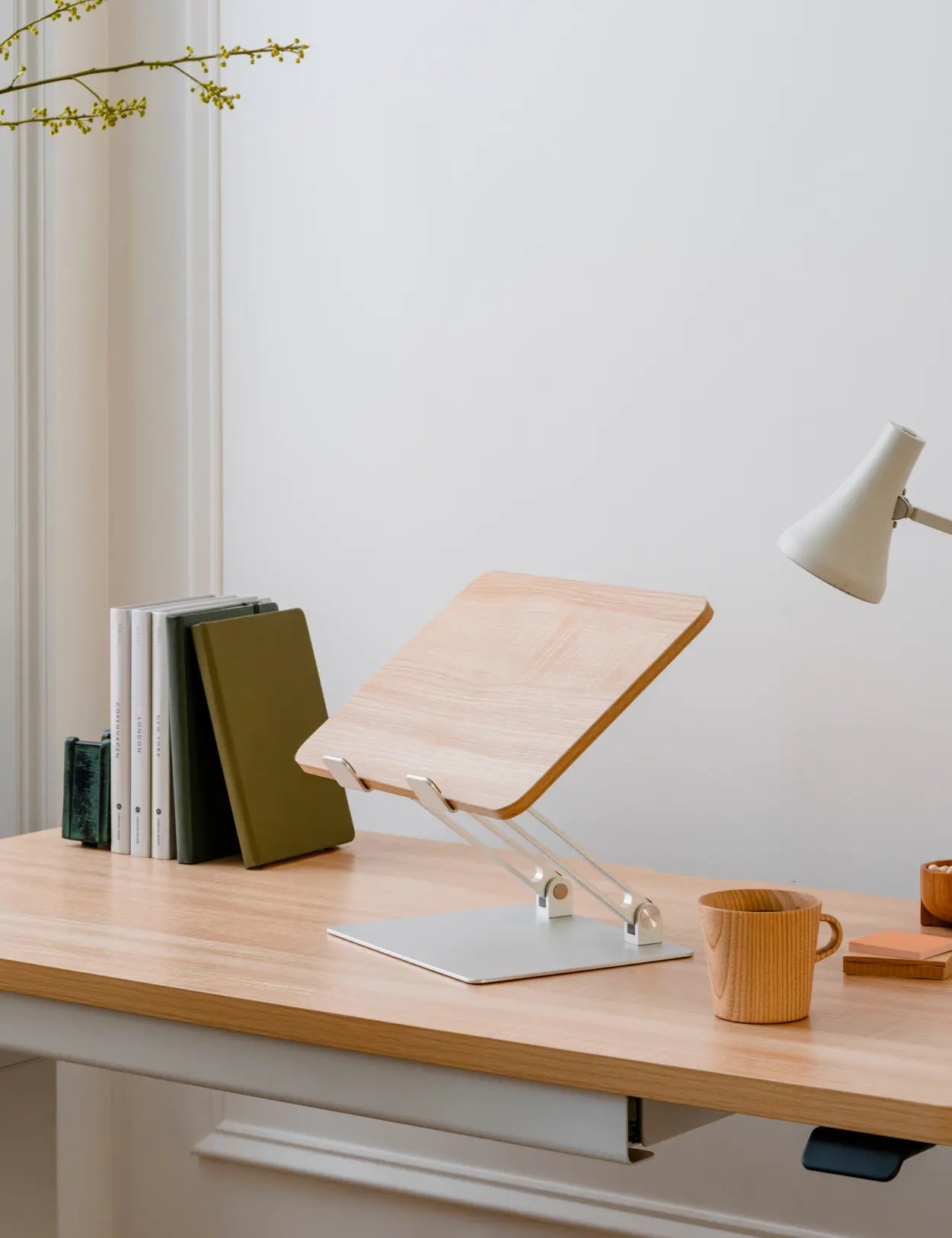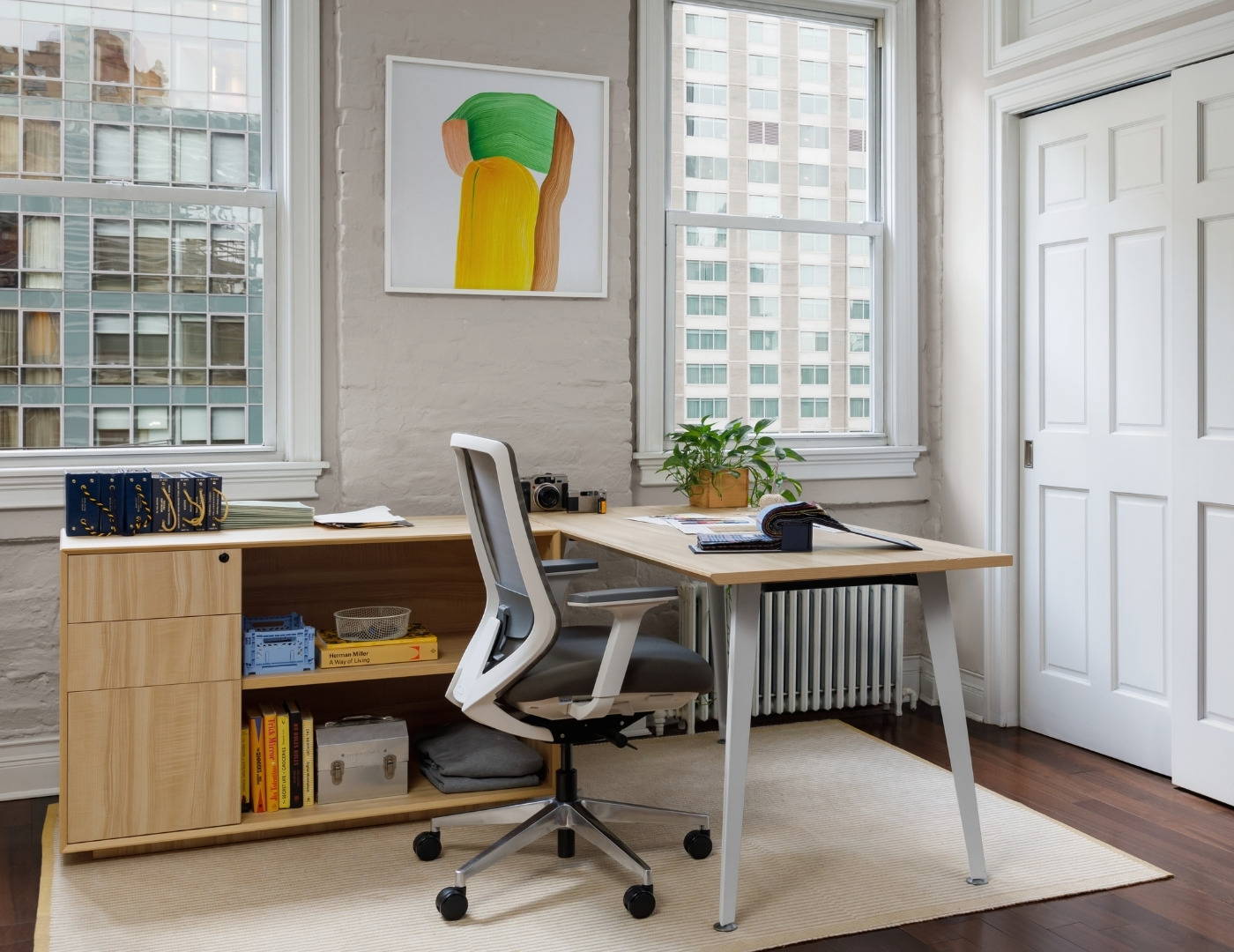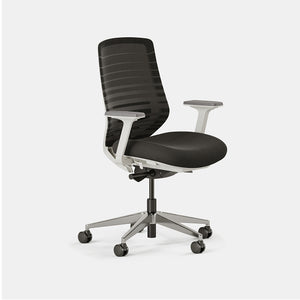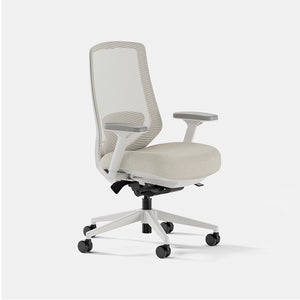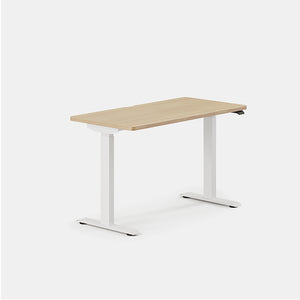Even if you don’t commute to your job, you should still have a functional workspace. Read on for a list of essential work-from-home equipment.
How to Set Up Your Home Office
Must-Have Pieces of Work-From-Home Equipment
1. Office Desk
2. Ergonomic Chair
3. Computer setup
- Laptop or MacBook
- Mac Pro tower or desktop PC with monitor(s)
- Wireless keyboard and mouse
4. Monitor Arm or Laptop Stand
5. Reliable Internet Service
Situational Work-From-Home Equipment
1. Headset
2. Webcam
3. Organization Accessories
4. Power Accessories
Try checking out a wireless charging pad or Stand. It helps to also get a desk that has features which help with cable and power organization. That way, if you have multiple devices on your desk that need charging, you won't have wires everywhere that clutter up your workspace.
Make It Your Own!
On new furniture, exclusive sales and more.






